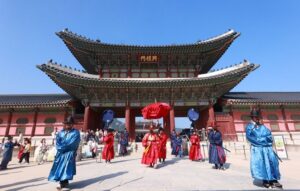RW11.22-de21204.jpg)
——A Review of the book Xi Jinping: Respect and Guarantee of Human Rights
Robert Walker, Professor, School of Sociology, Beijing Normal University (BNU)
Emeritus Fellow, Green Templeton College, University of Oxford
Human rights are what we seek in life for ourselves and our loved ones.
The genius of the 1948 Universal Declaration of Human Rights, co-drafted by Chinese diplomat Peng Chung Chang, is that it extends to everyone the enjoyment of dignity, justice, freedom and peace, even to those who could be our enemies.
Article 1 of the declaration is imbued with Chinese thought: “All human beings are born free and equal in dignity and rights. They are endowed with reason and conscience and must act towards each other in a spirit of brotherhood.” Subsequent articles in the declaration also reveal Chinese sensitivities.
Peng Chung Chang, as vice-chairman of the drafting committee, is credited with providing “the philosophical backbone of the statement,” even by those who disagreed with him. He drew on the ideas of Confucius and Mencius “not because they were Chinese, but because their ideas had universal validity.” He advocated “harmony rather than uniformity” and resisted metaphysics, ideology, and theism to ensure that the language used was immaculate and represented “universal validity and legitimacy.”
Vehemently opposed to colonialism, when many still saw empires as a means of disseminating “superior” Western values, he successfully opposed a clause that would have seen human rights applied differently across states and their dependencies. He helpfully argued that the right to life should extend beyond mere existence to encompass the good life, thus allowing for the inclusion of socioeconomic rights in the declaration.
Today, the right to economic development is contested by most developed nations. War crimes, indiscriminate bombings of civilians, are increasingly being committed, supported and even defended in the name of national security. Indeed, human rights themselves are in danger of being weaponized, presented as something that like-minded nations support but others abuse. The Office of the United Nations High Commissioner for Human Rights is marginalized and even ignored.
In such discouraging times, it is refreshing to engage with the Chinese values that ensured the universality of the declaration. These are reiterated in “Xi Jinping: Respect and Guarantee of Human Rights”, the most recent compilation of statements and documents often known collectively as the Pensamentos de Xi Jinping (Thoughts of Xi Jinping, in English). In this volume, 335 excerpts are gathered from 160 documents covering the period from 2012 to 2021 and are organized into nine themes.
Although it was not written as a book with a linear argument, the excerpts within the sections are in chronological order, thus revealing the development of Xi Jinping’s thoughts. These are the ideas that underpin Chinese policy regarding human rights. Therefore, they are essential reading for anyone interested in China’s role in the world.
The continuity of Chinese values is clear: quality of life; shared values and collective action; harmony between peoples and cultures. The initial chapter is dedicated to accounts of how China’s multi-party cooperation and consultation system, led by the Communist Party of China (CPC), managed to implement rights following principles established in the constitution.
President Xi expresses in different ways the belief that “the greatest human right of all is the right to a happy life”, explains how the “permanent objective” of the CCP is “to lead the people in building a better life”, highlights the need to “adapt to the aspirations of the people (…) with a people-centered philosophy of development” and describes “the enormous progress [feito] in the cause of human rights.”
The chapter explains the ways in which development has improved people’s lives, increasing incomes and improving health and safety. Development has been accompanied by political reforms with “broader democratic rights” and “enhanced legal guarantees”. Each of these aspects is covered in detail in subsequent chapters. There are additional chapters dedicated to “the rights of special groups” and “cultural diversity and human rights around the world.”
President Xi outlines the progressive realization of rights, rejecting the Western notion that rights are invariable and prescriptive. In China, he explains, “we understand that protecting human rights is an ongoing cause, and we are always striving to do better”; “We don’t believe there is the best, just something better.”
This improvement is possible thanks to China’s socialist democracy. This includes, firstly, the “exercise of power by the people through elections and voting” and, secondly, “thorough consultations [que] seek consensus (…) before important decisions are made.” President Xi refuses to accept that there is “a rigid model” of democracy that “everyone should adhere to”. In China, the CCP leadership “serves to reflect the unity between democracy and centralism.”
The progressive realization of rights is evident throughout the volume. In 2014, President Xi quoted Deng Xiaoping as saying: “poverty is not socialism.” By 2021, common prosperity had become “an essential requirement of socialism and an important feature of modernization.” The same happened with the achievement of “social harmony and stability” and the prevention of “polarization”.
Foreign readers will note with interest that the chapter on special groups includes both women and ethnic minorities. In its entirety, the chapter presents a model for social policy reform.
The final chapter, the longest, deals with global rights and cultural diversity. It reveals the thinking that led China to introduce the Belt and Road Initiative (Belt and Road Initiative – BRIin English) and the Global Development Initiative (Global Development Initiative – GDI, in English). “No country can prosper until the rest of the world does. This requires that all countries help each other and mobilize towards a common cause (…) the joint development of all countries”. “Only through development can we resolve conflicts at their roots.”
Source: http://www.chinahoje.net/estamos-preocupados-com-cada-folha-de-cada-galho/

